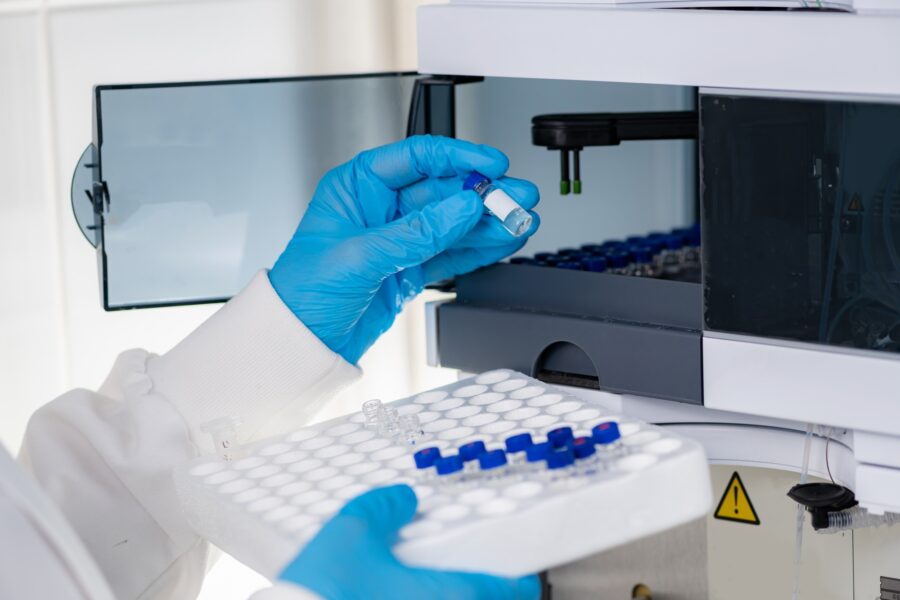Clinical Trials
Clinical trials are how we find new and better ways to treat cancer, including lymphoma. Although CAR T-cell therapy is already approved to use for some people, clinical trials are currently testing if even more people with lymphoma could benefit from this treatment.
This page explains what clinical trials are, how they work, how you can join one, and what types of trials are happening now for people with lymphoma.

Frequently Asked Questions
What Is a Clinical Trial?
A clinical trial is a type of research that tests a new treatment or a new way to use an existing treatment. Trials are done in stages (called phases) to make sure the treatment is safe and works well.
- Phase 1: Tests if the treatment is safe in a small number of people.
- Phase 2: Looks at how well the treatment works and checks for side effects.
- Phase 3: Compares the new treatment to standard treatment in a larger group.
- Phase 4: Happens after the treatment is approved and used by more people, to keep checking safety and benefits.
Can I Join a Clinical Trial?
Every trial has rules about who can take part. These are called eligibility criteria. Before joining a clinical trial, you will be screened (tested) to see if the trial is a good match for you.
Ask your doctor if there are any clinical trials you could be screened for. Trials are not right for everyone, but they may be a good option for some people – especially if standard treatments haven’t worked.
If you qualify, your doctor will explain the risks and benefits before you decide to join the trial or not.
Can children with lymphoma join clinical trials?
Yes, some clinical trials do allow children to join. Ask your child’s oncologist or haematologist if there are any clinical trials your child can be screened for.
What CAR T-Cell Trials Are Happening in Australia?
Australia has several clinical trials for CAR T-cell therapy. These trials are looking at:
- New targets on cancer cells. Most current CAR T-cells target a protein called CD19. New trials are testing CAR T-cells that target other proteins on lymphoma cells, such as CD22 or CD20.
- Earlier use of CAR T-cells. Some trials are testing if CAR T-cell therapy works better when used earlier, like in first-line treatment, instead of after a relapse.
- Different subtypes of lymphoma. Trials are happening for several subtypes of Non-Hodgkin Lymphoma.
- Combination trials. Some trials are testing CAR T-cells with other treatments, like chemotherapy, antibody therapy, or targeted medicines to see if they work better together.
Ask your doctor or care team if there is a trial that matches your lymphoma type and treatment history.
Are There Trials Overseas?
Yes. Many CAR T-cell trials are happening in the United States, Europe, and Asia. If you are not eligible for a clinical trial in Australia, you may be able participate in one overseas. However, in many cases you may need to pay for your own travel and accommodation where the trial is being held.
Let your doctor know if you are willing to travel overseas for a clinical trial.

Summary
Clinical trials may help improve lymphoma treatment. CAR T-cell trials are testing new targets, new timing, and new lymphoma types. If you’re interested in joining a trial:
- Talk to your doctor
- Ask to be screened
- Learn about risks and benefits.
Research is moving fast. Today’s trials could be tomorrow’s treatments.
If you need help finding a trial, talk to your healthcare team. You can also check the Australian New Zealand Clinical Trials Registry (ANZCTR) or contact Lymphoma Australia on 1800 953 081 or email nurse@lymphoma.org.au for more information.
For further information
Get a referral
Speak to your haematologist about whether you are eligible or appropriate to have CAR T-cell therapy. If so, your haematologist can arrange a referral.
Eligibility and Access
For any queries related to patient eligibility for CAR T-cell therapy or how patients can access this treatment, please email:
CAR-T.enquiry@petermac.org
Support Line
You can contact the Lymphoma Nurse Support Line: T 1800 953 081 or email: nurse@lymphoma.org.au for further information or advice.

